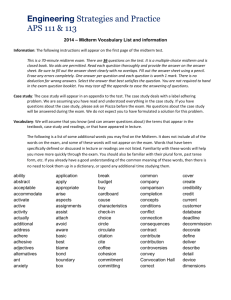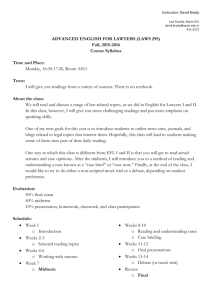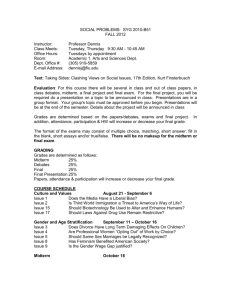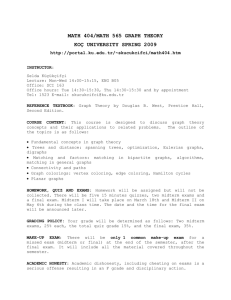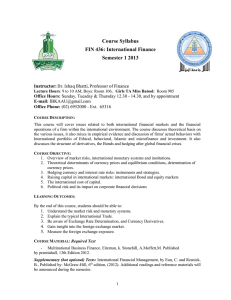International Financial Management Syllabus, HKU 2003
advertisement
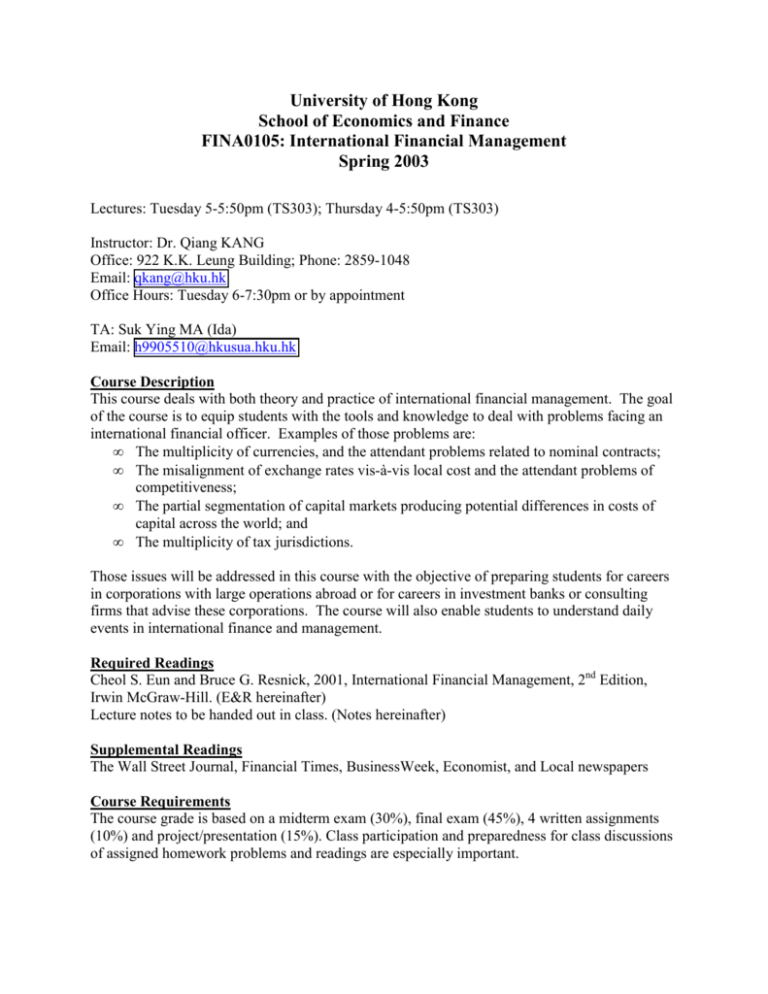
University of Hong Kong School of Economics and Finance FINA0105: International Financial Management Spring 2003 Lectures: Tuesday 5-5:50pm (TS303); Thursday 4-5:50pm (TS303) Instructor: Dr. Qiang KANG Office: 922 K.K. Leung Building; Phone: 2859-1048 Email: qkang@hku.hk Office Hours: Tuesday 6-7:30pm or by appointment TA: Suk Ying MA (Ida) Email: h9905510@hkusua.hku.hk Course Description This course deals with both theory and practice of international financial management. The goal of the course is to equip students with the tools and knowledge to deal with problems facing an international financial officer. Examples of those problems are: • The multiplicity of currencies, and the attendant problems related to nominal contracts; • The misalignment of exchange rates vis-à-vis local cost and the attendant problems of competitiveness; • The partial segmentation of capital markets producing potential differences in costs of capital across the world; and • The multiplicity of tax jurisdictions. Those issues will be addressed in this course with the objective of preparing students for careers in corporations with large operations abroad or for careers in investment banks or consulting firms that advise these corporations. The course will also enable students to understand daily events in international finance and management. Required Readings Cheol S. Eun and Bruce G. Resnick, 2001, International Financial Management, 2nd Edition, Irwin McGraw-Hill. (E&R hereinafter) Lecture notes to be handed out in class. (Notes hereinafter) Supplemental Readings The Wall Street Journal, Financial Times, BusinessWeek, Economist, and Local newspapers Course Requirements The course grade is based on a midterm exam (30%), final exam (45%), 4 written assignments (10%) and project/presentation (15%). Class participation and preparedness for class discussions of assigned homework problems and readings are especially important. Exam and Assignment Policies Midterm: March 13, Thursday, 4-5:30pm. Final: TBA. Both the midterm and the final exams are closed-book. Non-programmable calculators will be needed in the exams. No makeup exam for the midterm. In case you can’t attend the midterm due to some uncontrollable conditions, the midterm weight will be shifted toward the final. No late submission of assignments will be accepted. Unexcused absences from exams or failure to submit assignments will result in zero grades in the calculation of numerical averages. Course Topics About foreign exchange markets and instruments • Introduction to international financial markets (E&R Ch1-2 & Notes) • Spot exchange markets (E&R 75-91) • Forward markets and eurocurrency markets (E&R 91-98, 154-156 & Notes) • Currency futures and currency options (E&R ch9) • Currency and interest rate swaps (E&R ch10) About understanding exchange rate behavior • Short-run behavior: interest parity and expectations (E&R 99-107 & Notes) • Long-run behavior: PPP and real exchange rates (E&R 108-114 & Notes) • Forecasting exchange rates (E&R 115-119) About foreign exchange exposure and management • Measuring and managing economic exposure to exchange rates (E&R ch12) • Measuring and managing transaction exposure (E&R ch13 & 438-447) • Measuring and managing translation exposure (E&R ch14) About international portfolio choices • International bond and equity markets (E&R ch7&8) • International portfolio investment (E&R ch11 & Notes) About international taxation and cost of capital • International taxation and tax planning (E&R 475-480 & Notes) • International capital structure and cost of capital (E&R ch16) • International capital budgeting (E&R ch17 & 376-390) About international financing and cross-border acquisitions • International debt financing • International equity financing (E&R 192-194, 370-375 & Notes) Special Topics (Time Permitting) • Asian Financial Crisis • Currency Board (Argentina) • Mexican currency devaluation
